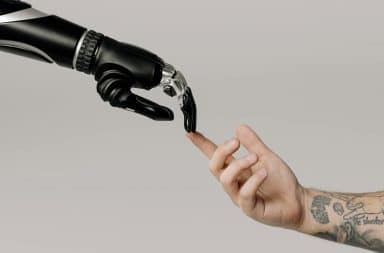Emotional support animals (ESAs) are prescribed as a means to help people with mental disorders cope with their symptoms. These animals can provide real benefits such as reducing feelings of loneliness, providing routine, increasing one’s sense of self-worth, and even lowering stress.
While many people choose common household pets such as dogs and cats as ESAs, an ESA can be any animal. As such, some people have chosen some interesting (and perhaps slightly bizarre) animals as ESAs. Let’s talk about some of the weirdest emotional support animals you can have and why they are or aren’t a good choice.
Turkeys
Although it may sound strange to keep a turkey as an emotional support animal, domestic turkeys tend to be quite docile and affectionate, so much so that they have been compared to dogs. Not only that, but female turkeys can lay eggs that are perfectly edible and even healthy.
The downside to turkeys is that they need to be kept outside. They eat a lot and require more space than other birds like chickens.
Crocodiles and Alligators
Believe it or not, some people keep crocodiles and alligators as emotional support animals. We can’t recommend these animals as ESAs because they are wild and can be very dangerous.
Furthermore, it’s illegal in many states to own crocs and alligators. There are a few states where it’s legal to keep such animals, but you’re usually required to get a license or permit and reapply for it yearly.
Pigs
Pigs are intelligent and can be quite affectionate. For the right owner, a pig can be a wonderful ESA. However, pigs have certain instincts such as rooting and chewing that can be destructive if not given a proper outlet. Pigs also do not stay small; depending on the breed, a fully grown pig will be anywhere from 80 to 200 pounds.
Monkeys
Small monkeys like marmosets have been seen as emotional support animals. However, primates, regardless of size, typically do not make good ESAs or pets. The average person cannot provide the environment these monkeys need to thrive. It’s not uncommon for them to become aggressive, and they require specialist veterinarians which can be difficult to find.
Ducks
A baby duck raised by humans often sees those humans as family and is quite docile. Though ducks are companionable, they are very messy and thus a lot of work.
They cannot be potty trained and defecate a lot. They require water to splash and swim in, and this water needs to be cleaned frequently. Cute and companionable as they are, for most people, ducks are too much work to keep as an ESA.
Peacocks
In many states, it is illegal to own peacocks. Aside from this, peacocks can't be housetrained and need a lot of space. They are also loud, making them a menace in suburban settings. Though peacocks can be tamed, they don’t make the best ESAs.
Chickens
Chickens can be quite friendly and docile, and best of all, they provide free eggs! Surprisingly, chickens are relatively self-sufficient and low-maintenance, although you will need to clean the coop regularly.
The downside to keeping chickens is that they are considered livestock and thus it may be difficult or even illegal to feed them certain medications when they are sick. Chickens are typically kept outdoors because they cannot be potty trained.
Squirrels
Because squirrels are wild animals, it is illegal to own them in many states. Most squirrels are not especially docile and are not afraid to bite or scratch, which can be very painful. They’re incredibly messy to keep in a house and can also be very destructive as chewing is their natural instinct. As cute as they are, squirrels do not make good ESAs.
Kangaroos
Kangaroos are also not legal to own in many states. Though kangaroo attacks are not common, kangaroos are still wild animals and can inflict serious injuries if they feel threatened. Kangaroos cannot be kept indoors and require at least a 50’ x 50’ pasture. Overall, it is unrealistic to own a kangaroo; they are wild animals and are not suitable as ESAs.
Ponies
Did you know that miniature ponies are sometimes used to guide the blind? They are gentle animals that enjoy human companionship. While it may be best to keep them outdoors, they can be house-trained. A miniature pony needs at least 200 square feet of space to roam. This is an expensive animal to keep as an ESA as they can cost between $350 and $700 per month to care for.
Is a Weird ESA Right for You?
Though the animals on this list are not common choices for ESAs like cats and dogs are, some of them would still make good ESAs as long as you can provide proper care. If you’d rather play it safe and stick with a dog, though, we totally understand. If you do, consider emotional support dog registration in addition to your prescription letter so you’re more prepared to deal with any problematic landlords.


